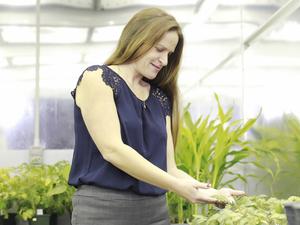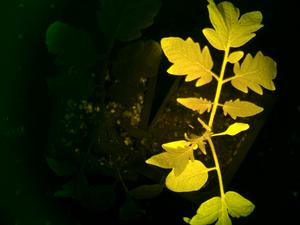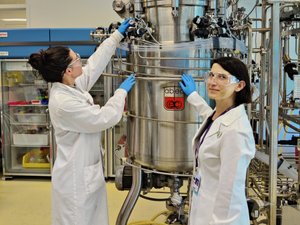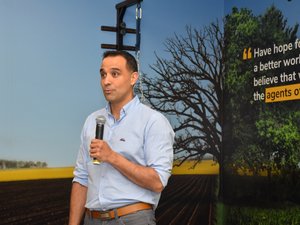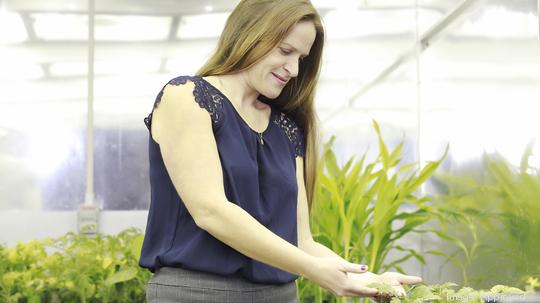
Davis-based InnerPlant has gotten approval from the U.S. Department of Agriculture for its first commercial product, InnerSoy, which is a soybean plant that signals visually when it is under attack.
When crops with traits developed by InnerPlant are in distress, they fluoresce in lighter images when viewed through a filter, whereas healthy plants remain dark.
The USDA approval is “a huge step. It clears the way for us past regulatory hurdles in the U.S.,” said Sean Yokomizo, InnerPlant spokesman.
The USDA’s Animal and Plant Health Inspection Service approved multiple Regulatory Status Review requests on InnerPlant traits, including for a fungus sensor on soy and sensor for soy health.
The approval means that the traits and plants are deemed to be safe to be used commercially, he said. The company is now working on demonstrating commercial viability on yield trails this year and next year.
InnerPlant is currently testing a camera mounted on a drone aircraft to spot problems in crops that have its traits. The company is sending a satellite into orbit later this year with Satellogic (Nasdaq: SATL) to be able to offer farmers monitoring from space.
“The USDA approval confirms our due diligence around the safety of our technology and reduces the time and complexity of our commercial development cycle,” said Randy Shultz, InnerPlant senior vice president of research and development, in a news release. “It’s an encouraging proof point as we continue working toward global regulatory approvals.”
The company plans farmer trials in 2024 with commercial launch in 2025, Yokomizo said.
InnerPlant has 28 employees, mostly working in research and development in Davis and greenhouses in Woodland.
The data that InnerPlant collects allows farmers to react quickly to plant health in the field. The traits that fluoresce under stress show themselves faster than a farmer can see looking directly at the plants.
Plants fluoresce in different colors depending on the stressors, such as pest attachment, nutrient deficiency, lack of water or fungal pressure.
That allows smart equipment to pinpoint areas that need treatment and treat only those spots, and not the entire field. Farmers can access the satellite information on their existing farm equipment technology platforms, Yokomizo said.
The InnerPlant strains allow farmers to see problems quickly in the field, rather than waiting several weeks to see damage, said Shely Aronov, CEO and founder of InnerPlant, in a previous interview.
Last September, farm equipment giant John Deere led a $16 million funding round into InnerPlant, with participation from existing investors, Menlo Park venture capital firm MS&AD Ventures, TAU Ventures of Tel Aviv, Israel, San Francisco-based Bee Partners LLC and Palo Alto-based UpWest. John Deere is a subsidiary of Moline, Illinois-based Deere & Co. (NYSE: DE), a farm equipment and heavy construction machinery manufacturer. The company has raised more than $22 million since its launch in 2018.
